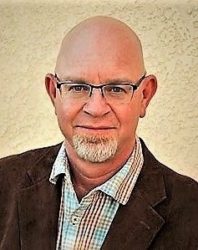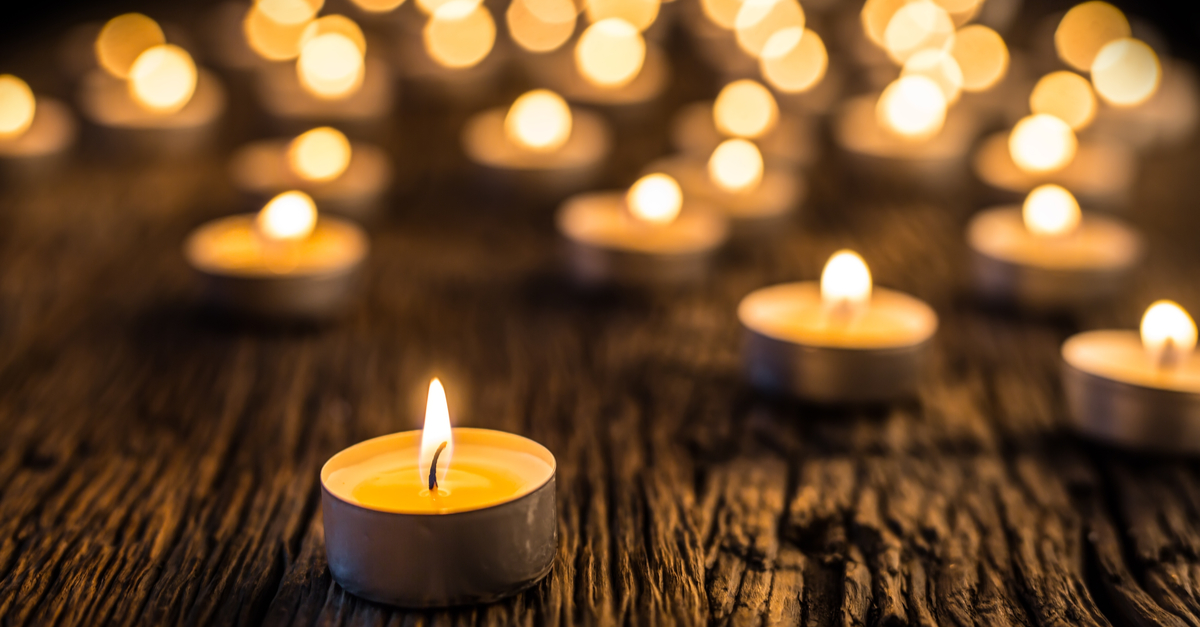 Scott Brassart
Scott Brassart
Many addicts new to recovery struggle with the idea of finding a Higher Power and incorporating that Higher Power into their recovery. Typically, resentments, fears, character defects, and the wreckage of their past stop them from trusting not just organized religion but anything at all related to the development of spiritual connection.
This was certainly the case for me. When I started my journey toward healing from addiction, I defined myself as atheist or agnostic, depending on my mood. This was the result of witnessing hypocrisy in organized religions and also “higher power” entities like my family, my school, athletics, governments, and pretty much everything else that involved other human beings.
At an early age, I developed a profound lack of trust, which pushed me away from connecting with other people, and also from connection with any type of spiritual Higher Power. So, there I was, alone, distrustful, and disconnected not only from others but from myself. Is it any wonder that I tended to identify as atheist or agnostic? I simply did not understand that spiritual connection is centered not on the beliefs and behaviors of flawed human beings, but on an authentic connection with one’s own values and vulnerabilities.
These days, when I discuss spirituality with newly recovering addicts, I usually start by asking them to describe their concepts of God, religion, and spiritual connection. Occasionally, these individuals describe things that sound pretty awesome. If so, our discussion of spirituality ends and we move on to other topics of necessity and interest. Other times, however, what these men and women share with me sounds scary, judgmental, angry, punishing, manipulative, and demanding.
At that point, I typically share my own story, talking about how I found it strange that a supposedly loving God would choose to drown every living creature except two of each species. (I was raised in a Christian church, in case you’re wondering.) Then I share that stories about the virgin birth, talking snakes, and spontaneously combusting bushes did not ever ring true for me, and that I was too young when I first heard these stories to understand them as metaphors rather than supposed facts.
So I found myself in a church filled with liars worshiping a deity that kills us and condemns us to the eternal flames of hell when we don’t behave. The alternative to hell, of course, was heaven. I was told that if we do everything – and I do mean everything – according to God’s will from the moment of conception to the moment of death, we go to heaven. Then I was told that heaven is a place where they play harp music and sing hymns all day, which sounded almost as awful as perpetually roasting like a chestnut.
My point here is that my thoughts and feelings about God and religion and other forms of Higher Power pushed me away from the development of spiritual connection. But then I found myself in 12 Step recovery, and three of the steps were pushing me toward a spiritual connection. Needless to say, I resisted.
Thankfully, my therapist, sponsor, and several friends pointed out the fact that 12 Step programs use the language “God as we understand God” rather than just “God” to specifically make the point that we don’t need to believe in any existing religion or established version of God as part of recovery.
 Those four words “as we understand God” are, for many people, including me, the most important words in the entire 12 Steps. And please keep in mind the fact that I recently co-authored a book about the steps and how to work them. Without these four words, it is likely that I (and countless others) would have walked away from the recovery I desperately needed. But with those four words, I (and countless others) stuck around.
Those four words “as we understand God” are, for many people, including me, the most important words in the entire 12 Steps. And please keep in mind the fact that I recently co-authored a book about the steps and how to work them. Without these four words, it is likely that I (and countless others) would have walked away from the recovery I desperately needed. But with those four words, I (and countless others) stuck around.
In time, I developed an understanding of my Higher Power. That Higher Power does not match anything espoused by any established religion or spiritual practice. Nor is it static. In the beginning, I went with a version of “The Force” from Star Wars, where there is something physical that connects us to others and others to us. For example, if you’re in a small boat on a lake and I toss a giant rock into that lake, that rock will create waves that will rock the boat you’re in – and vice versa if it’s you who tosses the rock. And yes, I know that version of Higher Power does not provide much to grasp onto, but it was all I could handle in the early stages of recovery.
Eventually, I was told that if I was open-minded about my recovery, I was likely to find a Higher Power that works for me. Around that same time, a close friend shared the words a priest had once shared with him when he joined a church in which he felt loved, comforted, and connected. The priest said:
I can tell you the formal history and theological reasoning behind everything we do here – lighting a candle when praying, crossing oneself, giving something up or taking something on at Lent – but I invite you to instead learn about these practices by doing them. Try a practice for a few days or a week and see what speaks to you about it. People have engaged in spiritual practices for centuries, so there’s likely something about them that you’ll find personally meaningful and helpful. Then, after trying it, if you want to talk about it or read up on it, we’ll chat. But consider trying it first.
Over time, I have done exactly that, finding a few things that work for me and plenty of others that don’t. I have also worked several exercises, some more than once, to get a better handle on who and what my Higher Power might be. My favorite of these exercises is to get a large sheet of artist’s paper and draw a giant circle on it. Then, inside the circle, I list or paste pictures depicting the traits I would most want in a friend and mentor – loving, forgiving, funny, etc. Outside the circle, I list or paste pictures depicting the traits I least want in a friend and mentor – judgmental, pushy, demeaning, etc. Then I cut away all the material outside the circle and ceremonially burn it. What remains, I find, is a perfect descriptor of my Higher Power.
And even that extremely personal and unique vision continues to change over time. I am continually exposed to new ideas or things happen in my life that alter my values and priorities. As my life changes, so does my spiritual connection. And for a recovering addict, that is perfectly OK. However it is that I understand my Higher Power at any given moment, that understanding fits perfectly into the framework of the 12 Steps and my needs in recovery.
* * * * * * * * * *
If you or someone you care about is struggling with sex, porn, or substance/sex addiction, help is available. Seeking Integrity offers inpatient treatment for sex, porn, and substance/sex addicts, as well as low-cost online workgroups. At the same time, SexandRelationshipHealing.com offers a variety of free webinars and drop-in discussion groups, podcasts, and more.
